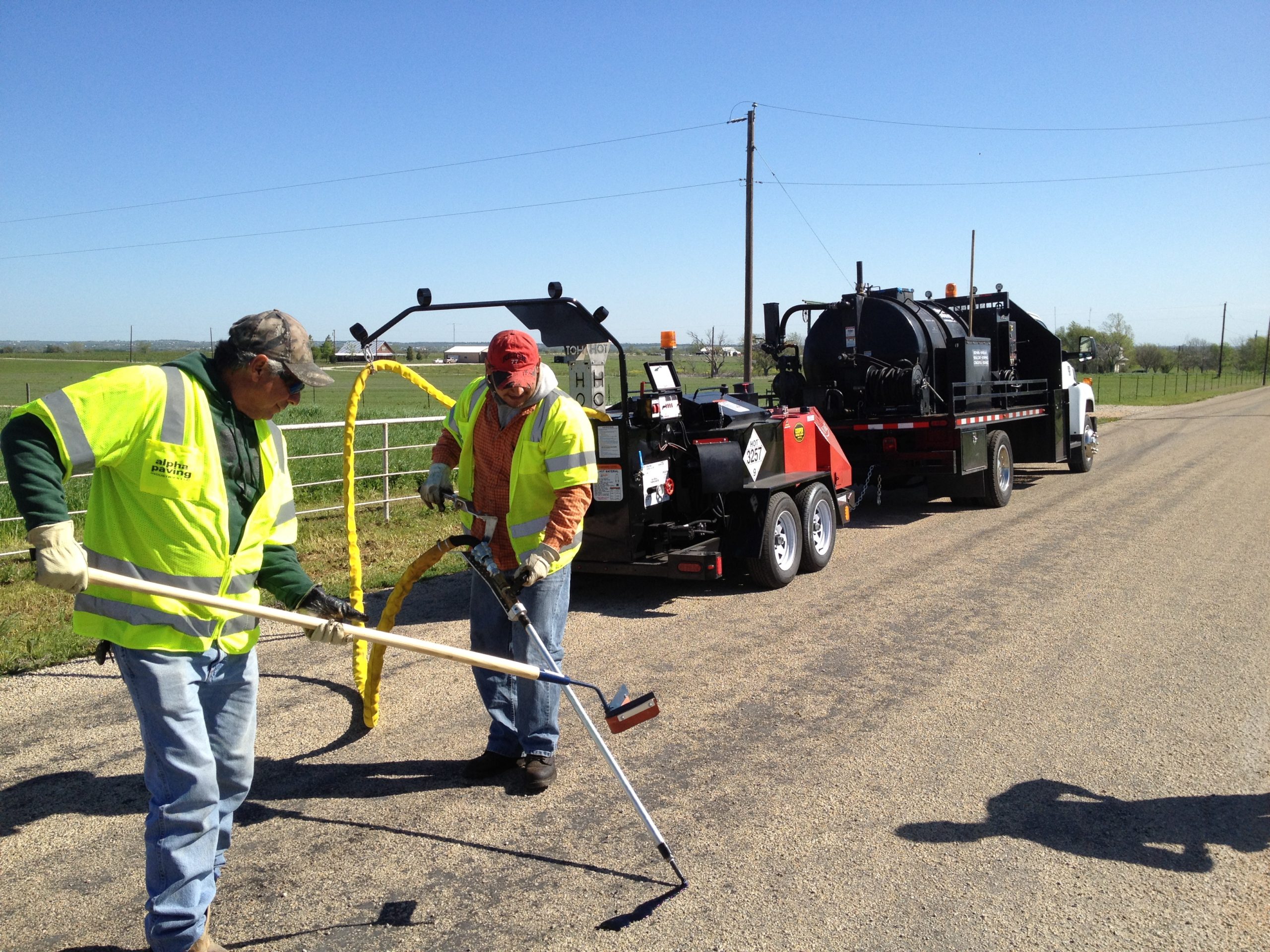

Asphalt Crack Sealant – Hot Or Cold? – Longevity
Hot-pour asphalt sealants will outlast cold-pour sealants. A four-year test conducted by the University of Texas at Austin in conjunction with the Texas Department of Transportation revealed that cold-pour sealants had a treatment effectiveness that averaged 0.52 percent, but hot-pour sealants had an average treatment effectiveness of almost 43 percent.
Asphalt Crack Sealant – Hot Or Cold? – Application Method
Cold-pour sealants are delivered to the job site in liquid form. They are then poured directly into the crack. Hot-pour sealants arrive as solids that must be melted before they are poured into the crack.
Asphalt Crack Sealant – Hot Or Cold? – Adaptability to Temperature Changes
Cold-pour sealants do not form a strong bond to the surrounding asphalt and are inflexible. The sealants cannot move with the pavement when it expands in the summer or contracts in the winter. The weak bond and lack of flexibility means that cold-pour sealants are easily dislodged and ejected. Hot-pour sealants will expand and contract when temperatures change, and they form a much stronger bond to the surrounding asphalt.
Asphalt Crack Sealant – Hot Or Cold? – Uses
Cold-pour sealants are not suitable for deep or wide cracks. Thus, hot-pour sealants are typically preferred for highways, parking lots and other pavements that have major cracks or a variety of cracks.
Asphalt Crack Sealant – Hot Or Cold? – Cost
Cold-pour sealants require less time, labor and equipment. Based on a one-time application, it will usually be cheaper to use a cold-pour asphalt sealant. However, this must be considered a temporary solution; the chances are excellent that the same crack will need to be repaired in less than a year. When viewed over a period of several years, the overall cost of a repair made with a hot-pour sealant can be substantially less than the total of having cold-pour sealants applied repeatedly. Over four years, the total costs for cracks repaired with cold-pour sealants can be three to five times greater than the costs for repairing the same cracks with hot-pour sealants.
Choose a Trustworthy Asphalt Contractor
At Alpha Paving, we have the experience to help you make the right choices for your asphalt pavement. We are a highly regarded asphalt paving company in Austin, Texas with an extensive range of asphalt and concrete services, including crack repair, sealcoating, asphalt paving, road construction, speed bump installation, concrete repair, parking lot striping and pavement marking, asphalt overlays, parking lot signs and street maintenance. Our customers include churches, healthcare facilities, airports, churches, schools, municipalities and counties, apartment complexes, hotels, retailers, subdivisions and HOAs, restaurants, industrial facilities, shopping malls and office complexes. We deliver award-winning customer service and extraordinary quality at competitive prices. For a free quote, call 512-677-9001 or complete our online form.
Alpha Paving Industries – The Premier Paving Contractor in Austin, TX!

